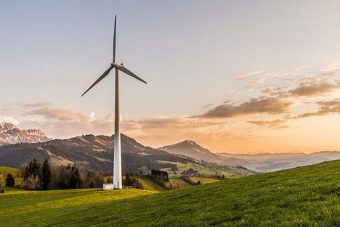
The Asian Development Bank announced on Monday its approval of a $75 million loan to support the development of the largest wind farm in Pakistan.
The deal with Triconboston Consulting Corporation (TBCC) is ADB’s third wind energy investment in Pakistan’s burgeoning independent power producer segment.
Power from the largest project will be sold under a twenty-year take-or-pay energy purchase agreement under a feed-in-tariff to Pakistan’s Central Power Purchasing Agency.
The three 50MW wind farms, situated located in Jhimpir, some 100km northeast of Karachi, will generate a total of 520 gigawatt-hours annually and are expected to be completed by March 2018. The project sponsors include Sapphire Textile Mills, a leading local energy developer, and Bank Alfalah, Pakistan’s sixth largest bank by market share.
“This wind farm is a major contributor to Pakistan’s drive to scale up renewable energy use and to reduce its reliance on coal and petroleum for power generation,” said Mohammed Azim Hashimi, Investment Specialist in ADB’s Private Sector Operations Department.
“The operation of this farm will avoid the production of over 350,000 tons of carbon dioxide equivalent emissions a year and help to close the country’s power shortfall,” he said.
The Sindh government has leased three contiguous parcels of land totaling 3,852 acres to TBCC for the development of the project, which will not require any physical or economic displacement since the lease area is uninhabited and agriculturally unproductive.
Sapphire firmly believes that renewables have changed the energy paradigm and remains committed to the development of renewable energy resources in Pakistan. The 150 MW Triconboston wind power project is a step in this direction” said Nadeem Abdullah, Chief Executive Officer of Sapphire Textile Mills.
Pakistan has launched several initiatives to promote private sector participation in the country’s energy sector, with a concerted push to build up its renewable energy resources and to cut its heavy dependence on fossil fuels. Power shortages are a major obstacle in Pakistan’s economic development, with demand for electricity outpacing supply.
By providing much needed power to a country facing a severe power shortage, which is adversely affecting economic growth, the project has direct and indirect benefits by incrementally increasing access to energy for households, businesses, and industry. It will alleviate poverty through skilled and unskilled job creation and other associated economic activities, ADB says.
The project will also help realise government’s target of 6 per cent renewable energy in the country’s energy mix by 2030, as stated in the Medium Term Development Framework. By using wind energy, the project will diversify the country’s fuel mix away from its current heavy dependence on (imported and price volatile) fossil fuels.
It will also help the country to attain a diverse fuel mix using indigenous and renewable sources of power, which is needed to develop a balanced and robust power supply system with hedged power generation prices in the medium and long term.
ADB’s assistance is helping the government to address the persistent energy crisis through Vision 2025, Pakistan’s comprehensive plan for economic growth. The plan aims to increase power generation, provide uninterrupted electricity to all, and improve demand management.
Source: dawn.com
Photo: white-energy.com.sa

